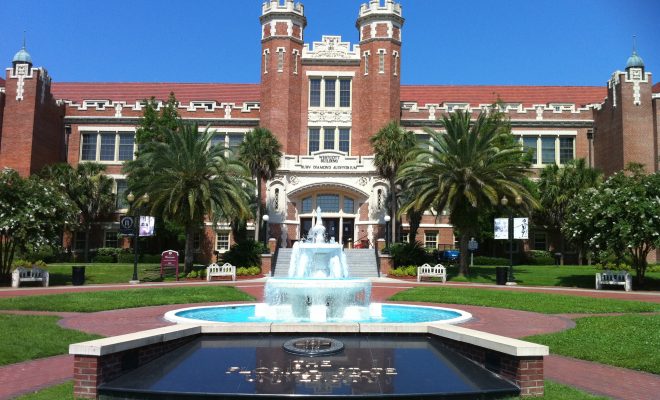2023 Best Bachelor’s in English Programs

Click here to find out more about the ranking methodology that we used to compile this list.
Congratulations! If you represent a college or university that is included in this list, please collect your seal below.
Deciding which college to attend can be a daunting task. For many, it will be the most important decision that they make in their lives. To make an informed decision, you have to consider a lot of variables, such as cost of attendance, financial aid, student/teacher ratio, academics, student life, and more. These factors will either positively or negatively impact the quality of education that you receive.
Do you want to acquire a bachelor’s in English, but don’t know what institution you should attend? Well, if you are as ambitious as I was in my late teens, then you want to attend a top school, instead of an average or mediocre one. Fortunately, we have already done the legwork for you. To help you find the right school for your interests and goals, we’ve compiled a list of 2022’s best bachelor’s in English programs.
What institution did we forget? Leave your thoughts in the comment section below.
- University of Central Florida, Orlando, FL
The University of Central Florida is one of the largest institutions in the country, with a total enrollment of more than 66,000 learners. The school is also home to a popular distance education degree program that includes an online English degree with paths in literature and technical communication. Both degree pathways consist of 120 credits and feature fully online classes with no required campus visits.
The literature path investigates the historical, social, cultural, and theoretical significance of fiction, poetry, plays, and nonfiction via close reading and analysis. Learners develop skills in reading, writing, critical thinking, and argumentation by studying the history of literature and by examining periods and movements from the past several centuries. Electives allow degree candidates to focus on specific periods or countries, with classes like Gothic literature, Caribbean literature, post-World War II fiction, and Hispanic women writers. Online learners also finish at least one linguistics or theory courses, such as feminist theory or modern English grammar.
The technical communication path has many of the same classes but focuses more on the professional applications of writing for business, science, and other fields. Learners get a deeper comprehension of real-life writing processes via classes such as technical writing style and literature of science and technology. Degree candidates finish several literature classes, but electives accentuate rhetoric and composition, such as writing for the computer sector or writing for hypertext.
- University of Memphis – UofM Online, Memphis, TN
The University of Memphis is home to two fully online English degree programs: African American literature and professional writing. Both degrees build skills in written communication, reading, and analysis but do so using distinct areas of study. The concentration in African American literature examines the historical, cultural, and artistic contexts of black literary movements, while the professional writing concentration builds skills connected to the technical side of writing.
Irrespective of their concentration, degree candidates finish a 12-credit degree program core, which includes three foundational literature classes in British literature to 1750, British literature since 1750, and American literature to 1865. Learners finish the core by taking one of three electives: introduction to linguistics, persuasive writing, or advanced composition; 21 concentration-specific credits, including both required classes and electives, make up the remainder of the coursework.
Learners in the African-American literature path investigate the development of black authors across history, moving through the colonial enlightenment and slave narratives into the Harlem Renaissance and beyond. One of the concentration’s key components is an extended study of two to three writers, and learners build critical analysis skills by comparing the aesthetics of distinct authors.
The professional writing path builds skills in technical writing, professional editing, and online writing. Learners get a broad comprehension of real-life writing skills, with elective options that consist of web design, document design, and the publishing process. The professional path also includes an optional internship component that enables candidates to build experience in a professional writing environment.
- University of Massachusetts – Lowell, Lowell, MA
Building knowledge connected to literary traditions, analytical methods, and academic research, UMass Lowell’s online BA in English degree trains learners to become critical readers, writers, and thinkers. This fully online degree program requires no campus attendance and grants admission to learners from around the country.
The bachelor’s coursework consists of 120 total credits, while the English major itself requires 36 to 54 credits. Candidates finish required classes in the form of a degree program core, a theory/composition component, and a major author component. The core coursework builds foundational knowledge in the field of literature, focusing on British and American literary traditions. The theory/composition section consists of one class that builds a learner’s analytical viewpoint on literature and language. Finally, the major author component has sustained the study of canonical writers, such as Shakespeare, Chaucer, or other selected literary figures.
Electives comprise the remainder of the English coursework; learners may take a maximum of 36 English elective credits to fulfill their overall degree requirements. These classes focus on various concepts, including genre, literary history, regional movements, and literary traditions. Classes that cover drama, comedy, poetry, journalism, and autobiography investigate specific forms in greater depth, while classes in gay and lesbian literature, postcolonial literature, and American women novelists highlight underrepresented writers. Learners can also pursue genre-specific classes, such as science fiction and fantasy, mystery writing, and the horror story.
- University of Illinois at Springfield, Springfield, IL
Learners enrolled in the bachelor of arts in English degree program at the University of Illinois at Springfield benefit from an adaptable, fully online format that has a sizeable degree of self-paced learning. All English majors obtain individualized support from an academic advisor, who helps learners identify academic/professional objectives and determine effective class selections. The English Department also works in conjunction with the Teacher Education Program at UIS, assisting candidates who plan to pursue teaching licensure along with their online English degree.
The English coursework consists of 68 to 71 credits, including foundation classes, core classes, and several free and required electives. The 34-credit foundation component covers key concepts like linguistics, world literature, British literature, and American literature. The 22-credit core emphasizes literary study via classes such as rhetoric and composition in digital media, digital technologies in English studies, and research methods in English studies. Core classes run across the degree program and conclude with a capstone project where learners apply their academic interests to a professional context, such as academic or commercial publishing.
Electives cover an array of literary concepts, with three required components that introduce degree candidates to editing, and writing. Learners select one class from several options for each of these components; for example, the genre section has classes in poetry, fiction, drama, and film. Along with these required electives, learners select four additional 300- or 400-level classes in any area of literature.
- Saint Mary–of–the–Woods College, Saint Mary of the Woods, IN
A Roman Catholic liberal arts college based in Indiana, Saint Mary‐of‐the‐Woods serves a small learner body of around 1,700 individuals. The school’s online English degree investigates both real-life and creative approaches to reading and writing, examining the impact of literature on cultures around the world. The degree program also emphasizes the literary contributions of women and other underrepresented groups. SMWC has fully online coursework, with no required visits, and a primarily asynchronous delivery format that enables online learners to finish classwork at their convenience.
The undergraduate coursework consists of 125 total credits, while the English major requires at least 43 credits. The English coursework includes introductory and advanced concepts, giving learners a broad of trends in literature alongside focused studies focusing on distinct periods, movements, and styles. Some of the degree program’s notable classes consist of literature and myth, pop fiction, and contemporary world literature.
All degree candidates can finish a four-credit senior thesis/capstone project where they perform extensive research into a literary topic of their choice and present their findings in the form of a holistic paper or other endorsed format. The project lasts two semesters, beginning with a three-credit preparation class and concluding with a one-credit thesis class. Participants also have the choice to enroll in a one-semester study abroad experience at Regent’s College in London, which has advanced perspectives on British literature.
- Arizona State University – ASU Online, Scottsdale, AZ
Enrolling over 25,000 learners via online classes, Arizona State University is one of the largest distance education providers in the country. Among these distance offerings is the school’s online bachelor of arts in English, which is adaptable coursework that investigates concepts in literature, linguistics, literary theory, criticism, and the utilize of the English language.
The degree program positions fiction and nonfiction texts in social and historical contexts, emphasizing issues of literary representation, including race, ethnicity, class, and gender. ASU has this degree entirely online, with no required campus visits. Learners can select from several enrollment dates across the year. This online English degree normally takes around four years of full-time study to finish, although ASU also has an accelerated degree program that can be finished in just three years.
The English major includes just three required classes, offered at the beginning of the degree program: first-year composition, advanced first-year composition, and critical writing and reading about literature. While ASU requires learners to take several other humanities classes and a language component, degree candidates finish the remaining English credits by attending a wide selection of electives, including classes in environmental issues in literature and film, transborder Mexican and Chicano/literature of the Southwest, science fiction studies, and publishing in literary magazines.
Distance learners can also partake in an online internship offered via ASU’s online literary journal, the Superstition Review. This internship offers participants experience in the submission, selection, and editing processes used to produce a literary magazine.
- Thomas Edison State University, Trenton, NJ
Thomas Edison State University emphasizes self-directed learning and caters to working learners. Fittingly, the school has a strong distance education degree program that includes an online bachelor of arts in English. All TESU’s bachelor’s degrees consist of a liberal arts core that emphasizes five primary areas: intellectual and real-life skills, civic and international learning, knowledge of human cultures, comprehension of the physical and natural world, and general education.
The English coursework includes core classes, electives, and a culminating liberal arts capstone. The 12-credit core builds foundational skills in reading and includes two literature survey classes along with classes that focus on the analysis and interpretation of literature. The 18-credit elective component enables learners to investigate distinct literary movements, genres, and authors. English majors select from more than three dozen elective offerings, including classes that cover the American political novel, comic and satiric tradition, restoration drama, social protest literature, and the Augustan age. As part of the school’s general education requirements, degree candidates finish 27 additional elective credits, which may consist of more English classes.
The English coursework concludes with a three-credit liberal arts capstone class, which consists of a significant project in an area of English selected by the learner. Learners have the choice of completing a research project, a creative project, or some combination of the two.
- University of Colorado Denver, Denver, CO
One of the first schools to offer a fully sanctioned distance education degree program, the University of Colorado Denver is rated among the largest online learning providers in the western US. The school’s online bachelor of arts in English writing is a professionally focused degree that prepares learners for careers in the writing world.
Unlike many other online English degrees, this degree program emphasizes the practice of effective writing and editing rather than the study of literature. As such, the coursework focuses on rhetoric and all types of composition, including general writing, professional writing, and creative writing. Classes can be finished online or on campus, allowing learners who live nearby to mix and match learning formats.
The English writing major requires learners to finish at least 39 credits, with a degree program core that enables candidates to select from several foundational classes, including an introduction to writing studies, multimedia composition, language theory, and special concepts in rhetoric and writing. Learners then select three required elective classes from options such as technical writing, argument and logic, proposal and grant writing, and principles and practices of second language acquisition. Finally, learners pick five additional electives in any area of language, literacy, or digital media.
CU Denver encourages hands-on learning, and all online learners have access to the school’s experiential learning team, which helps connect distance learners to study abroad programs, internships, and other professional experiences.
- Valley City State University, Valley City, ND
Valley City State University hosts a bachelor of science in English education degree program that prepares graduates to serve as English teachers in secondary schools. The degree program is available entirely online, and VCSU has in-–state tuition to all learners, regardless of their location.
The degree requires learners to finish a total of 120 credits, split between general education requirements, the English major core, and a professional education sequence for secondary education majors. The English core consists of 42 credits and includes classes in language, composition, literature, and communication, and media studies. Learners must take classes from each of these areas. But, many of these components offer a selection of class options; for example, to fulfill the composition requirement, learners can select from classes in media writing, public relations, technical and science writing, and literary publications. Additionally, the literature component includes required classes in American, English, and world literature alongside focused classes such as critical theory, Shakespeare studies, and young adult reading and literature.
The teaching component consists of 32 credits of classwork, preparing degree candidates for teaching licensure upon graduation. Aspiring educators learn about distinct perspectives of education and pedagogy, with classes such as educating exceptional learners and comprehension of cultural diversity in education. A substantial portion of the coursework is dedicated to hands-on learning, and all candidates must finish a four-credit practicum experience and a 10-credit student teaching experience, both performed in a secondary school.
- California Baptist University – CBU Online, Riverside, CA
California Baptist University, a private Christian liberal arts institution, has an online bachelor of arts in English. This degree trains learners to assess and examine various forms of literature, emphasizing critical thinking and written communication. The coursework presents an introduction to literary forms fused with CBU’s Christian ethics.
Offered in a fully online format designed to accommodate working learners, the degree program uses primarily asynchronous delivery, giving learners the freedom to finish classwork at their convenience. Graduates can pursue careers in various areas of writing, publishing, and editing or pursue graduate studies in related fields. CBU also has an accelerated class format that enables some candidates to finish degree requirements in as few as 16 months.
This online bachelor’s degree in English literature requires 39 major-related credits. Lower-division requirements consist of a survey of major international literary movements, including British literature, American literature, and world literature. Upper-division classes introduce focused concepts surrounding the study of literature and languages, such as literary theory and criticism, language structure and acquisition, and Shakespeare studies.
Learners finish nine additional upper-division electives, building advanced knowledge of specific literary movements, genres, or periods. CBU also has an optional creative writing concentration that requires learners to earn an additional 12 credits; this concentration enables learners to investigate varied compositional styles, including fiction, nonfiction, and poetry.
- Central Washington University, Ellensburg, WA
Central Washington University is a state school that serves over 11,000 learners. The institution’s bachelor of arts in English—professional and creative writing degree couples a liberal arts foundation with studies in literature; creative writing; and various forms of professional writing, including scientific, business, and technical. This degree program also focuses on editing and publishing, giving graduates a broad viewpoint on the overall field.
Learners earning their English degree online finish at least 74 quarter credits split between a 32–credit degree program core, 27 credits of writing electives, and 15 credits of literature, linguistics, and film studies classes. The degree program core introduces key concepts in creative writing, rhetoric, English grammar, and writing for editing and publication. Electives consist of classwork in creative writing, professional writing, and a practicum; learners select from several options to fulfill each component. For example, creative writing options consist of an introduction to playwriting, fiction writing, and screenwriting fundamentals. In contrast, the professional writing section has classwork in copy editing, grant writing, and web writing fundamentals.
All online learners must finish at least two credits of practicum classes, which build hands-on experience and enable learners to observe professional writing practices up close. CWU has a practicum specifically for distance learners, but learners can select from several other options, including literary editing, literary design and production, and cooperative education.
- Ottawa University – Online, Ottawa, KS
A Christian liberal arts institution based about 50 miles southwest of Kansas City, Ottawa University serves more than 7,000 online-only learners through a holistic distance education degree program. The school’s bachelor of arts in English places literature in social and cultural contexts, examining the evolution and impact of literacy movements while emphasizing issues of social and environmental justice.
The school also has an array of complementary minors, including philosophy, communication, marketing, and theological studies. Ottawa formats its distance education degree program to accommodate working professionals, and all classes utilize a fully online, asynchronous format that requires no campus visits or set log in times. Additionally, the school’s generous transfer policy enables learners to transfer a maximum of 80 credits of previous undergraduate classwork toward their bachelor’s degree.
Learners earning their English degree online finish survey classes, theme-based classes, seminars, and a capstone project. Survey classes present a broad of literary history, tracing the development of literary forms from antiquity through the postmodern era. Theme-based classes investigate various literary movements and authors, such as multicultural literature, protest literature, environmental literature, and literary criticism. Two seminar classes focus on critical approaches to British and American literature.
Learners also finish one class in linguistics and one class in either expository or creative writing. The degree program ends with an integrative criticism capstone class, which enables learners to demonstrate their comprehension of literary history and the distinct approaches to literary criticism.
- Southern New Hampshire University, Manchester, NH
While Southern New Hampshire University manages a primary campus in the city of Manchester, the school may be best known for its extensive online degree program, which serves more than 90,000 learners around the world. Catering to working adults and learners with substantial obligations outside of classroom, the institution has a fully online, fully asynchronous class delivery format that enables learners to work via class materials at their own pace.
The school also maintains a generous credit transfer policy that enables individuals to apply a maximum of 90 previously earned credits toward a bachelor’s degree. SNHU’s online bachelor of arts in English language and literature builds skills in research, communication, critical thinking, and writing via the study of literary classics.
The coursework for this online English degree includes three required foundational classes: the English language, literary theory, and Shakespeare studies. Learners go on to select eight additional elective classes that investigate focused literary concepts, such as popular and contemporary fiction, renaissance and restoration literature, and nature writers. SNHU also requires candidates to finish one creative writing workshop, choosing from options in fiction, nonfiction, poetry, and playwriting. English majors can pursue either a thesis or non-thesis choice. The thesis choice requires extensive research on an endorsed literary topic, resulting in the creation of a substantial research paper that demonstrates a learner’s comprehension of literary history and theories of literary criticism. The non-thesis choice requires candidates to finish two additional upper-level literature electives.
- Granite State College, Concord, NH
A public college, Granite State College is home to a bachelor of arts in English language arts with a teacher licensure choice, training degree candidates for careers in education. This fully online English degree has three licensure pathways: early childhood education and early childhood special education; elementary education and general special education; or general, special education. Learners can also pursue a non-licensure pathway that includes fewer class requirements and no licensure exams.
Irrespective of their concentration, all learners finish both an English language arts core and an education core. The English language arts concentration has a core of literature and literary criticism, with classes like British literature, expository writing, disability in literature, and carry outing critical inquiry. Each licensure pathway includes several required education classes, which vary between paths. The early childhood path, for example, includes classwork in child development, young children with exceptionalities, and special education law. All candidates also finish an extensive education field experience in a supervised classroom setting, drawing connections between education theory and professional practice.
Students seeking teaching licensure must take the Praxis Core Academic Skills for Educators Exam, and specific licensure pathways require various additional exams. For example, learners in early childhood education and early childhood special education path must also finish the Praxis II–EC Education of Young Children Exam and the Pearson Foundations of Reading Exam.
- King University, Bristol, TN
A private school affiliated with the Presbyterian Church, King University hosts a popular distance education degree program, which has a bachelor of arts in English that investigates the relationship between literature and faith, emphasizing writing and communication skills in the context of literary study. While the degree program prepares graduates for various career paths, the coursework is designed to lead to secondary education licensure. Learners can finish the fully online major requirements in as few as 16 months.
The degree coursework includes a total of 124 credits, with 48 credits dedicated to major-related classwork. The English coursework includes 12 classes that offer a broad of literary movements and styles, including Appalachian literature, British romanticism, adolescent literature, and literature and the Christian imagination. The degree program coursework meets content requirements for secondary teaching licensure in English, preparing graduates to serve as English teachers for grades 6 through 12. Candidates seeking licensure must also finish several education class requirements and eight credits of foreign language classwork.
This online BA in English degree concludes with a holistic final exam. All candidates also assemble a portfolio that includes three examples of strong writing work, representing a learner’s development across the degree program. This portfolio also serves as a useful career tool, demonstrating a learner’s skills to potential employers.






